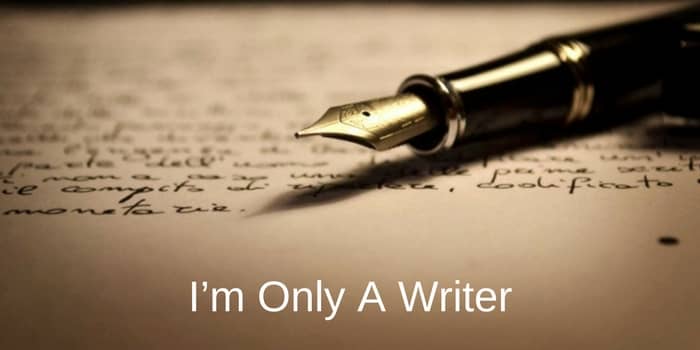
Typos, spelling and grammar errors and carelessness
Having read many, many comments and reviews about errors in ebooks, and of course, many directed at self-published books, it is worthwhile noting that large and well-known publishers are not immune from publishing books riddled with errors.
It is hardly surprising, as the number of traditionally published books that are being re-published in ebook formats from publisher’s back lists must amount to a staggering number. There is also the rush to get titles available in ebook format to take advantage of trends in the market. Fifty shades of absolutely anything, of course, being a good example of the current market rush.
After having had my Kindle for well over a long time now, I have probably read about the same number of self-published titles as those from mainstream publishers and I have to say that I can’t recall a single book that was error free.
Formatting errors, weird line breaks and font problems in particular in ebooks from large publishers lead me to think that manuscripts that were originally prepared for print were quickly converted for ebook distribution, without the painstaking and necessary process of cleaning formatting errors.
Typos, grammar errors and punctuation problems, while probably more prevalent in self-published titles, still occur in mainstream titles by large publishers. However, self-published titles too often suffer from very bad grammar and spelling and are a sure sign of a lack of competent proofreading and editing.
One of the problems with ebooks is that there are firstly so many different formats, which upon conversion can create nasty formatting errors in one format but perhaps not in another. Word processors are another source of errors. Style formats, auto text and spell checkers often working away automatically and happily riddling a manuscript with unnoticed errors. Then, of course, there is the human eye, which we all know is often unreliable when it comes to processing large amounts of text.
As with any new technology, it will take time to find its way, but I am not sure ebooks will ever be perfect. There are simply too many variables along the way from word processor to ebook reader that are extremely difficult to control and monitor. It’s also worth considering that the traditional publishing process of a book to print takes about one year. I doubt that anything close to this amount of time is spent by traditional publishers in them preparing an ebook version.
So will we just have to accept that ebooks will always come with imperfections?




Maybe, but as writers we have an obligation to eliminate as many errors as possible.
Errors happen in both traditionally published works and indies. Part of the problem is that readers expect to see them in indie work and so they tend to find them more often. The burden is on our shoulders to put more effort into perfecting our craft than the old boys. Some editor at a big New York house might hire his shiftless nephew to scan backlists and get them converted because ‘he’s a whiz with computers’ but they often end up with an absolute mess.
The day is fast approaching when we will turn that concept on it’s head. Readers will come to see indie books (some at least) as finely crafted experiences while the products from New York will seem more like generic supermarket fare.
Well said Andrew :)
I buy very few Kindle books, but I did buy Bester’s “The Stars My Destination,” which I had never read. I still haven’t read it, partly because the formatting was awful! At intervals tthe paragraphing would disappear and the margin would move over to the indent point. It was too distracting, so I gave up. I know what happened – they uploaded a Word .doc rather than an HTML – because that same thing happened with one of my books when I tried to upload a .doc. Now, Smashwords – the only format that works for them is .doc. Sigh.
Oh Lorinda! Please don’t mention Smashwords and their instance on using .doc files. I use clean html files with Kindle and now have no problems at all. Word doc files are so full of code and miscellaneous crud that formatting errors are just about unavoidable and it would have to be the worst possible format to use when publishing an ebook. However it would seem to me that even the big publishers are using Word files, thus showing their lack of acumen in electronic publishing.
Actually, I just published my fourth book, and this time I had absolutely no trouble with Smashwords! (Of course it’s still under review and you never know if they’ll find something to quibble about when it comes to the Premium Catalog.) But what I do is remove all formatting in the .doc – make everything Normal style, remove all section and page breaks, and use nothing but an indented paragraph and centering. And never use extra spaces tacked on in the paragraph formatting – space everything by using the Enter key. I find that if you really, really simplify like that, it will go right through the meat grinder! Of course, there’s the NCX problem, but I think I licked that one, too, with this last book.
More reasons to hire copyeditors!
That extra set of eyes will help eliminate problems and is worth the cost and any short delay in publication, regardless of medium. The alternative is damage to both authors’ and publishers’ reputation in both the short and long term.